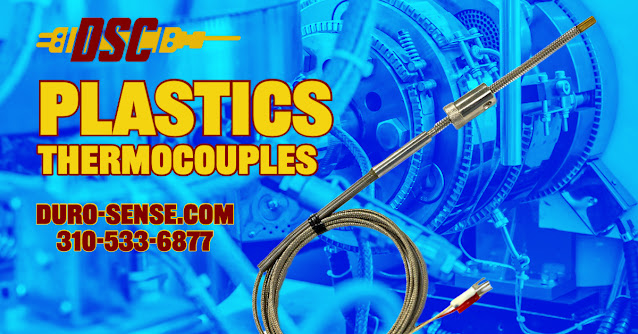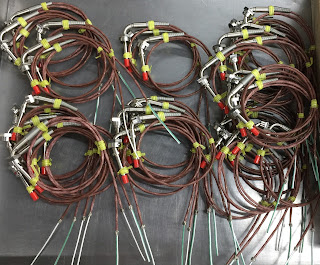Temperature control is critical in the plastics industry, impacting product quality, efficiency, and safety. The importance of temperature control and the role of thermocouples in producing quality plastic items cannot be understated.
The Significance of Temperature Control in Plastics Manufacturing
- Quality of End Products: The physical properties of plastic, like strength, flexibility, and color, are susceptible to temperature. Precise temperature control ensures these properties meet the specific requirements of each product.
- Efficiency in Production: Proper temperature regulation speeds up production cycles, reduces energy consumption, and minimizes material wastage, leading to cost-effective operations.
- Preventing Defects: Inappropriate temperatures can lead to defects such as warping, shrinkage, or burn marks, compromising the integrity and appearance of the plastic products.
- Safety: Overheating can cause degradation of plastic materials, potentially leading to hazardous situations like toxic emissions or fire hazards.
How Thermocouples Enhance Temperature Control in Plastics Manufacturing
- Accuracy and Responsiveness: Thermocouples provide rapid and accurate temperature readings, essential for the precise control required in plastics processing.
- Durability and Versatility: They can withstand harsh environments and high temperatures, making them ideal for various plastics manufacturing processes, including extrusion, injection molding, and blow molding.
- Cost-Effectiveness and Simplicity: Thermocouples are inexpensive and easy to install and maintain, making them a practical choice for many plastics manufacturers.
- Integration with Automation Systems: They can be easily integrated into automated control systems, enabling real-time monitoring and adjustments, vital for maintaining consistent product quality.
Practical Applications
- Extrusion: Thermocouples monitor and control the temperature of the extruder barrel, ensuring the plastic melts correctly for uniform flow and thickness.
- Injection Molding: They regulate the mold temperature, which is crucial for achieving the product's desired shape and surface finish.
- Thermal Forming: Thermocouples help maintain the temperature for shaping plastic sheets without causing damage.
In the plastics industry, precise temperature control is not just a matter of efficiency or quality; it's a cornerstone for successful operations. Thermocouples are indispensable in achieving this control, offering accuracy, reliability, and versatility. Their integration into plastics manufacturing processes ensures that the industry can meet the growing demand for high-quality plastic products safely, efficiently, and cost-effectively.
Duro-Sense310-533-6877
https://duro-sense.com




